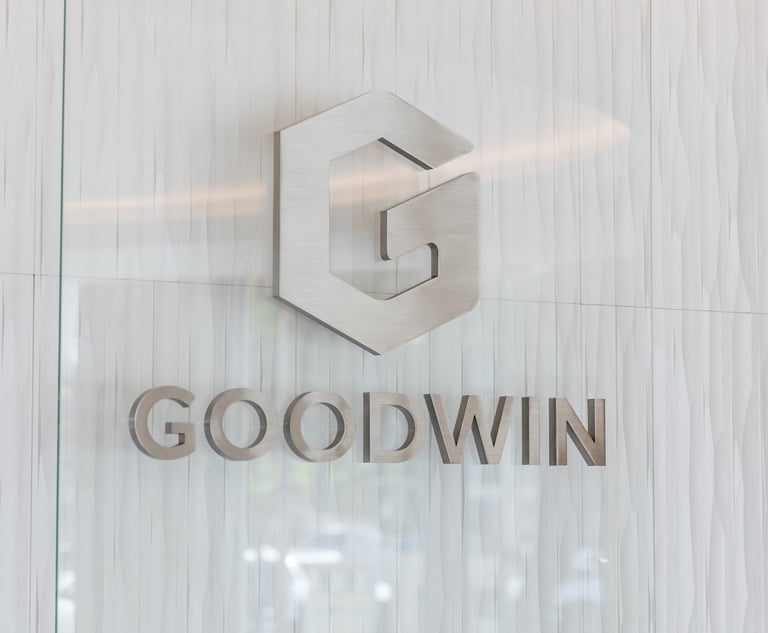How to Shift Your Litigation Strategies for the New IP Landscape
Sapna W. Palla and Andrew Bochner if Wiggin and Dana write: The year 2016 and the last few months of 2017 have been characterized by many notable developments, causing sea changes in intellectual property law that shift litigation strategies more than ever. While the changes have been far reaching, this article will focus on those which most impact litigation strategies, such as venue, laches, patent exhaustion, patent damages, and extraterritoriality, and provide practical suggestions for strategies to employ, along with real-world examples of successful approaches to navigate this new landscape.
July 17, 2017 at 04:21 PM
9 minute read
The year 2016 and the last few months of 2017 have been characterized by many notable developments in a busy U.S. Supreme Court and Court of Appeals for the Federal Circuit, causing sea changes in intellectual property law that shift litigation strategies more than ever. While the changes have been far reaching, this article will focus on those which most impact litigation strategies, such as venue, laches, patent exhaustion, patent damages, and extraterritoriality, and provide practical suggestions for strategies to employ, along with real-world examples of successful approaches to navigate this new landscape.
Limitation of Patent Venue
In a bid to address forum shopping by patentees, on May 22, 2017, the Supreme Court in TC Heartland v. Kraft Food Brands Group limited where patentees can commence patent infringement proceedings. TC Heartland, an Indiana-based company sued by Kraft Foods, an Illinois-based company, in Delaware, argued for transfer to its home base of Indiana. The lower courts refused to transfer the case to Indiana and, last year, the Federal Circuit held that patent suits can be filed in any district where the defendant makes a sale. The Supreme Court overturned the Federal Circuit and held that patent infringement lawsuits can only be filed in the district within the state where the defendant is incorporated, or the district where it has committed acts of infringement and has a “regular and established place of place of business.”
TC Heartland seems to favor bringing suits where defendants are located. The biggest effect of this decision will be in the Eastern District of Texas, where more than 40 percent of patent lawsuits were filed last year due to patentee-friendly juries and local rules which allow for fast trials. On the other hand, Delaware, where a substantial number of businesses are incorporated, and the Northern District of California, where many technology companies targeted with patent litigation are based, will likely see an increase in patent case filings. Thus, defendants unhappy about finding themselves in Texas could try to move the case to their place of incorporation. Conversely, this ruling also presents an opportunity for plaintiffs and courts in Texas to address what “regular and established place of business” means, and to try to construe that phrase favorably to keep cases in Texas.
Judge Rodney Gilstrap of the Eastern District of Texas wasted no time in interpreting the Supreme Court's ruling by denying defendant's motion to transfer for improper venue in Raytheon Company v. Cray. On June 29, Judge Gilstrap found that the employment of a sales representative within the Eastern District of Texas was sufficient to provide for a “regular and established place of business.” In finding venue to be proper, the court held that defendant's representations regarding its business in the district, benefits received from the district, and targeted interactions within the district were sufficient to satisfy the four-factor approach it employed.
Expansion of Patent Exhaustion Doctrine
The long-standing doctrine of patent exhaustion provided that the initial authorized sale of a patented item terminates all subsequent patent rights to that item, including any rights to assert infringement. On May 30, 2017, in Impression Products v. Lexmark International, the Supreme Court addressed: (1) whether a “conditional sale” that transfers title to the patented item while specifying post-sale restrictions on the article's use or resale avoids application of the patent exhaustion doctrine; and (2) whether the exhaustion doctrine applies to authorized sales of a patented article that take place outside of the United States. In expanding the doctrine, the court held that “a patentee's decision to sell a product exhausts all of its patent rights in that item, regardless of any restrictions the patentee purports to impose” on the resale of that item. The court noted that “[p]atent exhaustion reflects the principle that, when an item passes into commerce, it should not be shaded by a legal cloud on title as it moves through the marketplace.” The court also concluded that “[a]n authorized sale outside the United States, just as one within the United States, exhausts all rights under the Patent Act.” The court distinguished licenses from post-sale restriction noting, “[b]ecause the patentee is exchanging rights, not goods, it is free to relinquish only a portion of its bundle of patent protections.”
This content has been archived. It is available through our partners, LexisNexis® and Bloomberg Law.
To view this content, please continue to their sites.
Not a Lexis Subscriber?
Subscribe Now
Not a Bloomberg Law Subscriber?
Subscribe Now
NOT FOR REPRINT
© 2025 ALM Global, LLC, All Rights Reserved. Request academic re-use from www.copyright.com. All other uses, submit a request to [email protected]. For more information visit Asset & Logo Licensing.
You Might Like
View All
Testing The Limits of “I Agree”: Court of Appeals Examines Clickwrap Arbitration Agreements
13 minute read
Change on the Horizon?: 2025 Begins With Numerous Patent Bills Pending
8 minute read

IP at the Frontier of AI: Navigating the New Landscape
Trending Stories
- 1New York-Based Skadden Team Joins White & Case Group in Mexico City for Citigroup Demerger
- 2No Two Wildfires Alike: Lawyers Take Different Legal Strategies in California
- 3Poop-Themed Dog Toy OK as Parody, but Still Tarnished Jack Daniel’s Brand, Court Says
- 4Meet the New President of NY's Association of Trial Court Jurists
- 5Lawyers' Phones Are Ringing: What Should Employers Do If ICE Raids Their Business?
Who Got The Work
J. Brugh Lower of Gibbons has entered an appearance for industrial equipment supplier Devco Corporation in a pending trademark infringement lawsuit. The suit, accusing the defendant of selling knock-off Graco products, was filed Dec. 18 in New Jersey District Court by Rivkin Radler on behalf of Graco Inc. and Graco Minnesota. The case, assigned to U.S. District Judge Zahid N. Quraishi, is 3:24-cv-11294, Graco Inc. et al v. Devco Corporation.
Who Got The Work
Rebecca Maller-Stein and Kent A. Yalowitz of Arnold & Porter Kaye Scholer have entered their appearances for Hanaco Venture Capital and its executives, Lior Prosor and David Frankel, in a pending securities lawsuit. The action, filed on Dec. 24 in New York Southern District Court by Zell, Aron & Co. on behalf of Goldeneye Advisors, accuses the defendants of negligently and fraudulently managing the plaintiff's $1 million investment. The case, assigned to U.S. District Judge Vernon S. Broderick, is 1:24-cv-09918, Goldeneye Advisors, LLC v. Hanaco Venture Capital, Ltd. et al.
Who Got The Work
Attorneys from A&O Shearman has stepped in as defense counsel for Toronto-Dominion Bank and other defendants in a pending securities class action. The suit, filed Dec. 11 in New York Southern District Court by Bleichmar Fonti & Auld, accuses the defendants of concealing the bank's 'pervasive' deficiencies in regards to its compliance with the Bank Secrecy Act and the quality of its anti-money laundering controls. The case, assigned to U.S. District Judge Arun Subramanian, is 1:24-cv-09445, Gonzalez v. The Toronto-Dominion Bank et al.
Who Got The Work
Crown Castle International, a Pennsylvania company providing shared communications infrastructure, has turned to Luke D. Wolf of Gordon Rees Scully Mansukhani to fend off a pending breach-of-contract lawsuit. The court action, filed Nov. 25 in Michigan Eastern District Court by Hooper Hathaway PC on behalf of The Town Residences LLC, accuses Crown Castle of failing to transfer approximately $30,000 in utility payments from T-Mobile in breach of a roof-top lease and assignment agreement. The case, assigned to U.S. District Judge Susan K. Declercq, is 2:24-cv-13131, The Town Residences LLC v. T-Mobile US, Inc. et al.
Who Got The Work
Wilfred P. Coronato and Daniel M. Schwartz of McCarter & English have stepped in as defense counsel to Electrolux Home Products Inc. in a pending product liability lawsuit. The court action, filed Nov. 26 in New York Eastern District Court by Poulos Lopiccolo PC and Nagel Rice LLP on behalf of David Stern, alleges that the defendant's refrigerators’ drawers and shelving repeatedly break and fall apart within months after purchase. The case, assigned to U.S. District Judge Joan M. Azrack, is 2:24-cv-08204, Stern v. Electrolux Home Products, Inc.
Featured Firms
Law Offices of Gary Martin Hays & Associates, P.C.
(470) 294-1674
Law Offices of Mark E. Salomone
(857) 444-6468
Smith & Hassler
(713) 739-1250






